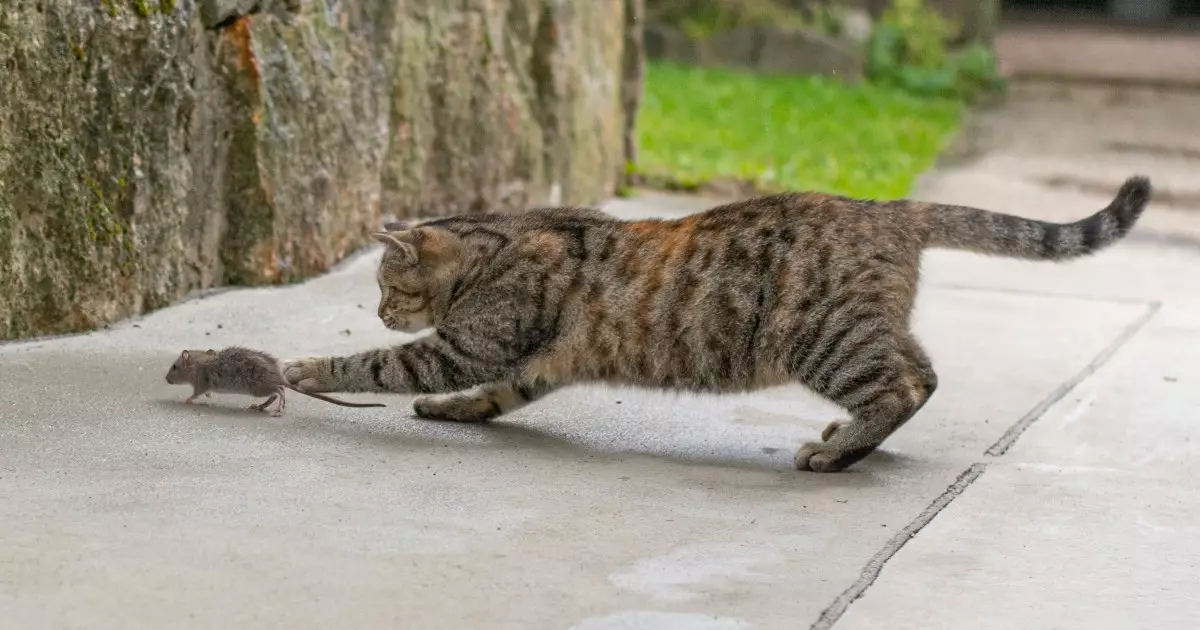Cats have held a significant place in human history, particularly in ancient Egypt, where their usefulness extended beyond mere companionship. Initially revered for their exceptional hunting capabilities, cats served as guardians against rodents that plagued grain stores, crucial for agricultural societies. Over centuries, the bond between humans and cats evolved, leading to their domestication. Despite their origins as outstanding hunters, domestication has altered many cats’ natural instincts, leading to a decline in their hunting skills. Today, the concept of finding a cat with a robust “old soul” for hunting requires a nuanced understanding of temperament rather than simply relying on breed alone.
When seeking a cat adept at catching mice, it is essential to recognize that not all breeds are inherently skilled hunters. While popular breeds like the Maine Coon were historically bred for mousing, many have transformed into gentle companions rather than active hunters. On the other hand, certain breeds are still recognized for their hunting prowess, such as the American Shorthair and British Shorthair. These breeds, with their sturdy builds and keen instincts, may be more naturally inclined to partake in the age-old chase of small vermin.
However, it is vital to remember that hunting skills in cats are not solely dictated by their lineage. A cat’s upbringing and personality play significant roles in determining whether they will engage in hunting activities. For example, many rescuers have noted that shelter-adopted cats, regardless of breed, often develop hunting tendencies due to their environment and socialization. Observing a potential mouser’s behavior can provide essential insights. A cat that often carries toys and demonstrates a sense of ownership may indicate a predisposition towards hunting and playfulness that mimics predatory behaviors.
Identifying a cat with hunting instincts involves more than just observing breed specifications; key behavioral traits should also be taken into account. Cats that exhibit curiosity, high energy levels, and persistence when engaging with toys are more likely to become effective hunters. Interestingly, female cats may have an edge in hunting proficiency, potentially due to their instinct to teach their kittens essential survival skills. Furthermore, the experience of older cats can make them better mousers compared to youthful, inexperienced kittens who may be more prone to distraction.
While spayed or neutered cats often display balanced temperaments that cultivate focus, a broader consideration should also be given to the cat’s environment. For outdoor settings, adopting feral or semi-feral cats can be beneficial. Although they may not provide the companionship that a domesticated house cat would, their instinctive behaviors can effectively control rodent populations.
It’s worth highlighting that a well-fed and healthy cat is likely to hunt more successfully than a starving one. Baiting a cat through deprivation is both unethical and counterproductive as it diverts the cat’s focus from natural hunting to finding food. Thus, maintaining a consistent feeding schedule ensures that the cat engages in hunting as a form of play rather than a survival mechanism.
Hunting also places cats at increased risk for various health concerns. Regular veterinary check-ups, vaccinations, and deworming are essential to safeguard their health. Owners must remain vigilant about local health risks, like Lyme disease or Hantavirus, that outdoor hunting may expose cats to.
While the notion of having a cat that excels at hunting is appealing, it is paramount to adopt with a holistic view. Cats are complex creatures that provide benefits far beyond their ability to catch mice. They are social animals capable of forming deep bonds with their humans. Thus, the pursuit of a mouser cat should never overshadow the need for companionship and care.
As modern lifestyles have shifted, so too have the roles cats play in our lives. By valuing both their historical significance and their capacity for companionship, we can form better relationships with our feline friends while still appreciating their natural behaviors. By considering the combined factors of behavior, health, and breed, prospective cat owners can select the perfect mouser who not only helps maintain a pest-free environment but also enriches their lives in countless ways.
